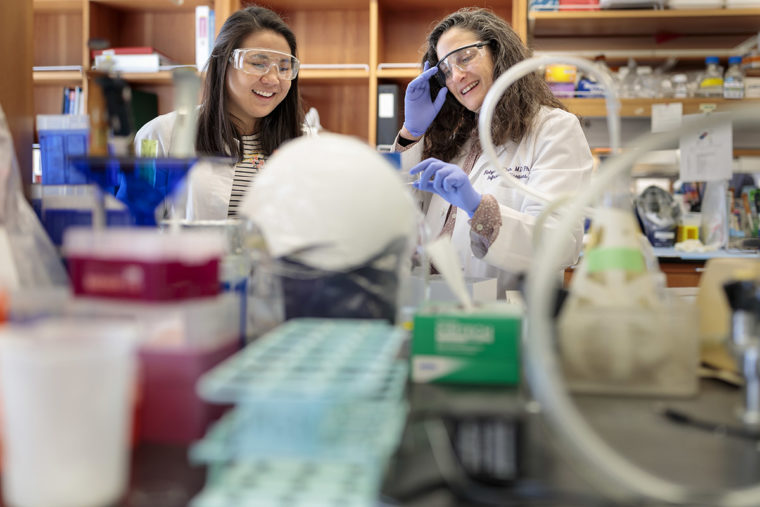In 2016, as Robyn Klein, MD, PhD, and Jessica Williams, then a postdoctoral fellow in Klein’s lab, looked over the program for an upcoming international neuroimmunology meeting they were planning to attend, one thing jumped out at them: Only 13 of the 85 invited speakers were women.
“Robyn told me later that she just couldn’t get past the look on my face when I saw how few women there were,” Williams said. “So within the next week, she decided to take a stand.”
Klein, vice provost and associate dean for graduate education for the Division of Biology & Biomedical Sciences at Washington University in St. Louis, emailed the organizers to demand an explanation. One wrote back to say that there simply weren’t as many accomplished women.
“That really got to her,” said Anne Cross, MD, professor of neurology and a longtime collaborator of Klein’s. “So she contacted all of her friends in neuroimmunology — men and women — and came up with a game plan to figure out whether there aren’t as many qualified women as men in the field. And she showed, pretty conclusively, that it wasn’t true.”
Her findings prodded the conference organizers to double the number of female speakers. Klein continued to investigate, eventually publishing a paper in Nature Immunology showing accomplished female scientists are routinely overlooked by neuroimmunology conference organizers worldwide.
It was the latest skirmish in Klein’s lifelong battle against the idea that women don’t belong in science. Today, she is a recognized expert on the brain’s immune system, and a founder and director of the university’s Center for Neuroimmunology and Neuroinfectious Diseases. But at one time, she was a bright kid growing up in a family and a community where she was told that girls didn’t do science.
Read the full profile on the School of Medicine website.
